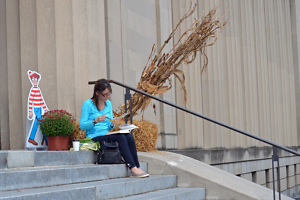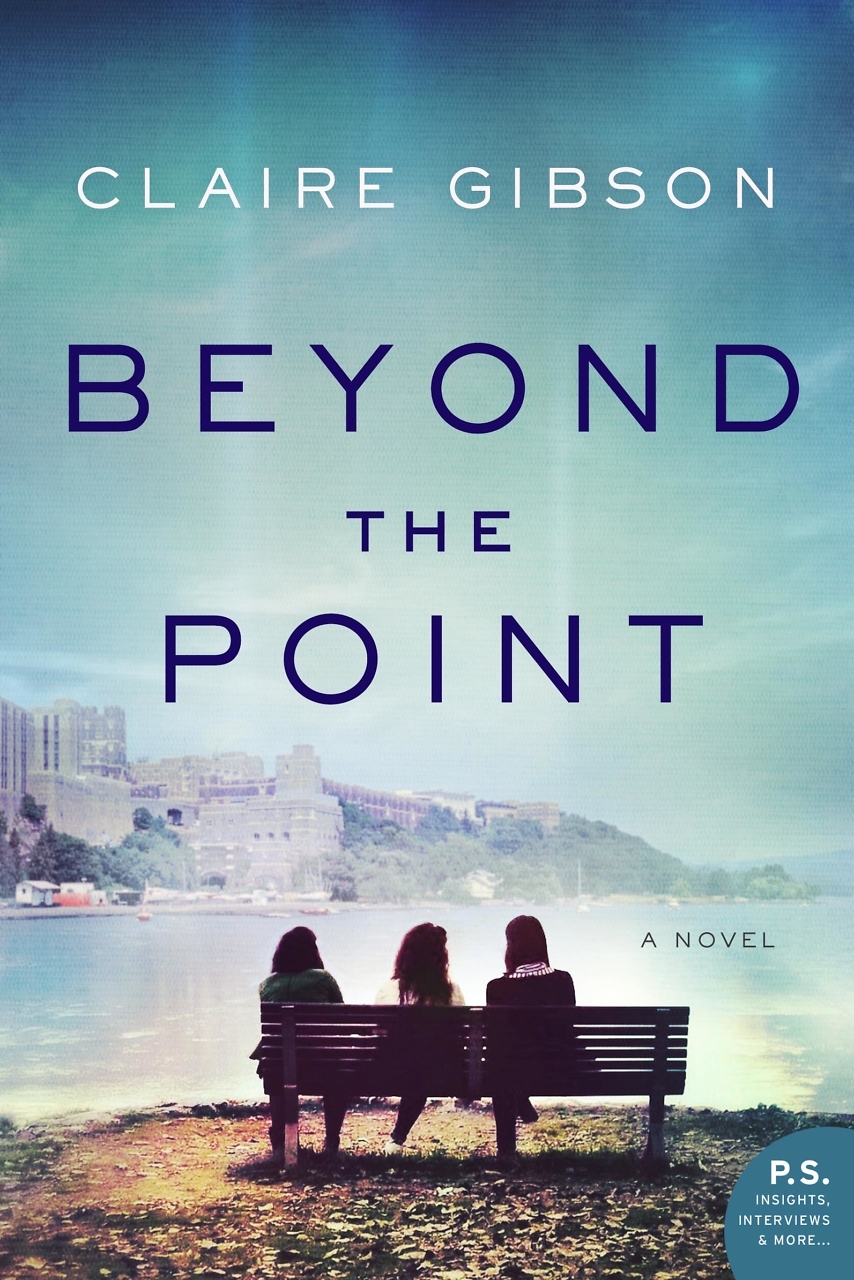The Homeplace on the Plaza
A writer measures her life by October weekends at the Southern Festival of Books
I moved to Nashville to take my first job, as a high school English teacher, two years before Humanities Tennessee launched the Southern Festival of Books. I can measure most of the stages of my adult life, like a child’s growth chart, by imaginary marks on a metaphorical doorframe made during the second weekend in October each year.
As a young teacher — too young to be daunted by the prospect of supervising teenagers in an as-yet-ungentrified downtown — I took my students to Nashville’s Legislative Plaza to hear readings by authors whose books were featured on their class reading lists. How many high school students get to meet writers like Pat Conroy, Josephine Humphreys, Bobbie Ann Mason, Lee Smith? My primary goal as a teacher was to make my students fall in love with reading, which made a book festival the pedagogical equivalent of Christmas morning.
The gift was as much mine as theirs. One year I was pregnant and had to leave the War Memorial Auditorium in a rush because novelist Clyde Edgerton was making me laugh so hard I wasn’t sure I’d make it to the restroom in time.
Over the next two decades, I brought my own children to meet their literary heroes at the same auditorium. What better inducement to thinking of books as a cause for celebration than a plaza full of brightly colored tents and live music and ice cream vendors and storybook characters come to life? One of my youngest son’s prize possessions is a book signed by Rick Riordan, and one of my own favorite festival memories is of walking down the War Memorial steps after Riordan’s talk, realizing I’d misplaced my child, and turning around in a panic only to discover that he had simply sat down on the top step and begun to read.
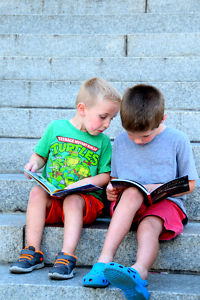
My most cherished memories of the festival are from the years when I worked for Humanities Tennessee as editor of Chapter 16. All year long I worked with reviewers to cover our home-state authors — and authors passing through Tennessee on book tour — and virtually all that work was done digitally, through phone calls and emails and text messages. The festival was my only chance to see most of those writers, reviewers and authors alike, in real life. Over the years it became almost impossible for me to make it to a festival session on time: I kept running into people I adored and stopping to talk.
That might sound a little insidery, I guess, like a reunion primarily for writers and editors and other publishing industry folks. But here’s what I learned during the decade when I was spending all weekend at Legislative Plaza: This festival seems to feel like a reunion for everyone who comes to it. All day long, people keep exclaiming in recognition and then reaching out for a handshake or a hug.
Maybe it’s just that the people who love books tend to be friends with people who love books, and maybe all those people who love books tend to wind up at Legislative Plaza during the second weekend of October. But I think it’s more than that. In a place where books are the center of the social sphere, even strangers feel like friends, bound by a common love of language, of stories, of imagination, of truth.
At any kind of reunion, there will inevitably be empty chairs at the table, and a book festival that has been around for 30 years is no exception. I will never walk up the War Memorial steps without a pang of longing for a time when I could count on running into beloved writer friends like John Egerton or Jim Ridley, or writers I couldn’t count as friends but whose familiar work made me feel as though I knew them anyway: Larry Brown, William Gay, Tony Horwitz, Patricia McKissack, Willie Morris.
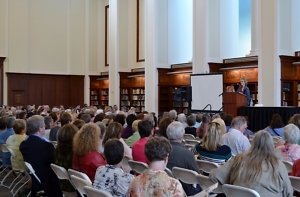
But if the joy of this festival is tempered by grief over those we have lost, losing beloved authors is tempered in its own way by the legacy they have left behind. Their books will always be there for me to revisit, and I will hear their voices anew every time I read their living words. But in October I feel their presence in a palpable way, too. I feel them near me on the War Memorial steps just as surely as I feel the weight of my own footfall as I climb to the auditorium I first took my students to visit three decades ago.
I remember those students; and I remember my children as toddlers, holding my hand as we made our way up to the top of that marble staircase; and I remember the embrace of so many friends. The festival became my literary homeplace one memory and one beloved person at a time. In so many ways, it is the place I came from and the place I return to, and it is the place where my literary forebears live on through the miraculous immortality of books.
This year I will attend the festival for the first time as an author myself, and another layer of joy will pile on top of these memories. But I won’t feel any different from the way I’ve always felt at the Southern Festival of Books. I will feel as though I’ve come home.
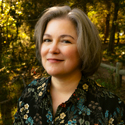
Copyright (c) by Margaret Renkl. All rights reserved. Margaret Renkl is the author of Late Migrations: A Natural History of Love and Loss and a contributing opinion writer for The New York Times, where her essays appear each Monday. She lives in Nashville and is the founding editor of Chapter 16.
